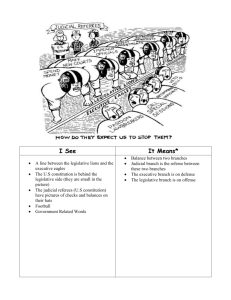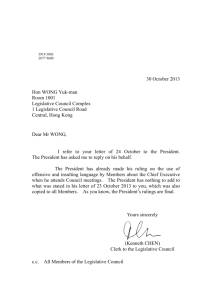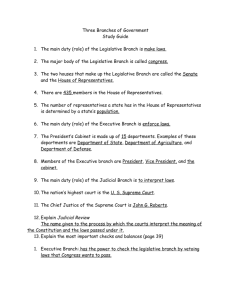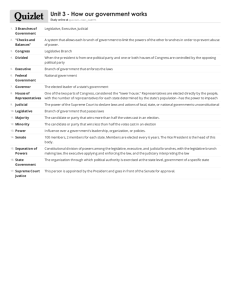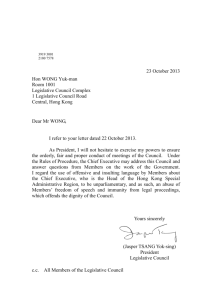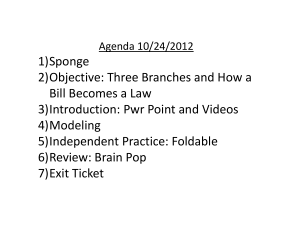Separation of Powers written in Constitution
advertisement
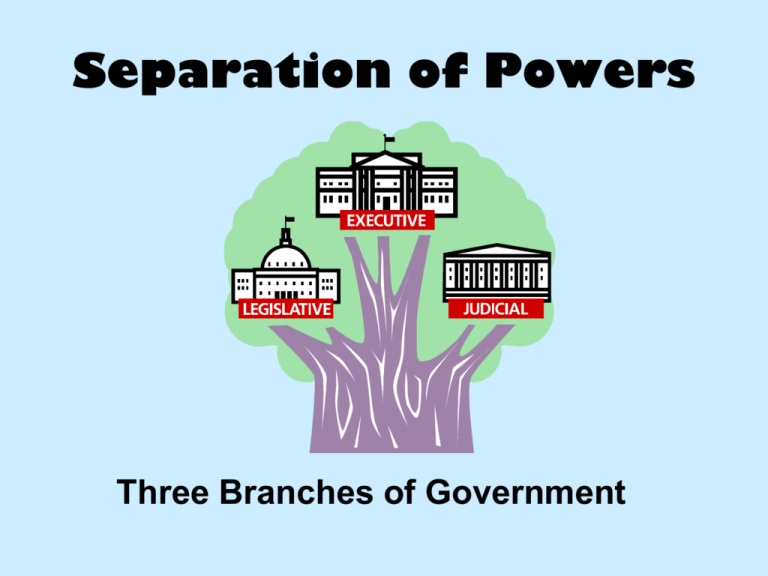
Separation of Powers Three Branches of Government Senate Makes the laws House of Representatives Executes/ carries out the laws Makes sure the laws are carried out fairly Chart of Three Branches of Government LEGISLATIVE House of Representatives: Senate: Both Together: EXECUTIVE JUDICIAL Can you put the following facts in the correct category? LEGISLATIVE EXECUTIVE JUDICIAL EXECUTIVE • The president serves a 4-year term. LEGISLATIVE • Senators serve a 6-year term. JUDICIAL • Judges of the Supreme Court serve for life. LEGISLATIVE • Representatives serve a 2-year term. LEGISLATIVE • A Senator must be 30 years old to be elected and a citizen for 9 years. JUDICIAL • Can declare laws unconstitutional. LEGISLATIVE • A Representative must be 25 years old to be elected and a citizen for 7 years. EXECUTIVE • Has power to approve or veto laws. EXECUTIVE • The President must be at least 35 years old, 14-year resident, and native born. LEGISLATIVE • Can propose tax laws. JUDICIAL • Can settle disputes involving the U.S. LEGISLATIVE • Can impeach the president. LEGISLATIVE • Can try (take to court) the president after impeachment. JUDICIAL • Can settle disputes between the states. JUDICIAL • Chief Justice presides over impeachment trial of the president. LEGISLATIVE • Can propose laws. EXECUTIVE • Makes treaties with foreign governments. LEGISLATIVE • Ratifies treaties with foreign governments. EXECUTIVE • Nominates judges to the Supreme Court. LEGISLATIVE • Can declare war. LEGISLATIVE • Can override president’s veto with 2/3 vote. LEGISLATIVE • Can propose amendments to Constitution with 2/3 vote. YES! EXECUTIVE • Is Commander-in-Chief of U.S. military forces. EXECUTIVE • Appoints cabinet members. LEGISLATIVE • Can approve presidential appointments. I agree! LEGISLATIVE • Creates federal courts. Congress Makes Laws President, Vice President,& Cabinet Carry out laws Supreme Court & Federal Courts Interpret Laws
